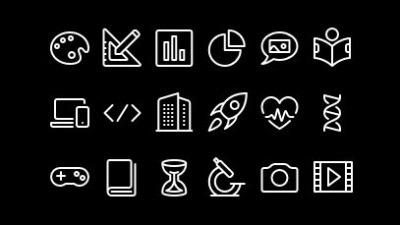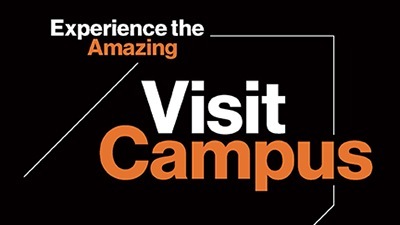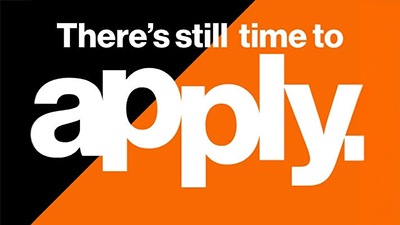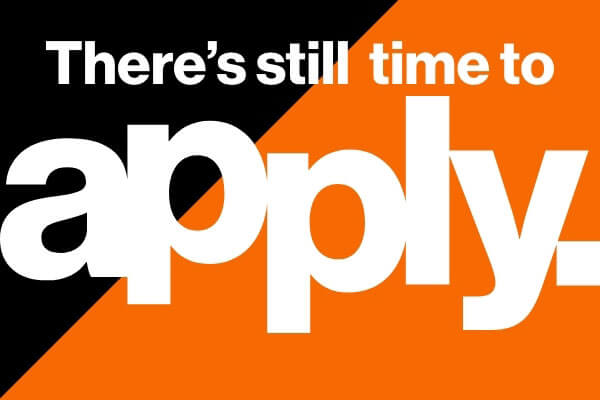ASL-English Interpretation Bachelor of Science Degree

ASL-English Interpretation
Bachelor of Science Degree
- RIT /
- National Technical Institute for the Deaf /
- Academics /
- ASL-English Interpretation BS
Overview for ASL-English Interpretation BS
The ASL-English interpretation major prepares sign language interpreters for work in settings where deaf, hard-of-hearing, and hearing people interact and communicate. This degree allows students to develop foundation skills for general interpreting, with opportunities to explore specialized fields such as those in educational and medical settings, and/or community interpreting.
The program is accredited through the Commission on Collegiate Interpreter Education and is one of only 16 accredited bachelor’s degree interpreting programs in the United States.
RIT/NTID Degree in ASL Interpreting
The bachelor’s degree in American Sign Language (ASL)–English interpretation provides specialized preparation for you to develop interpreting skills as well as practical experience and course work. The major is designed to provide graduates with a solid foundation on which to develop the skills needed to pass the National Interpreter Certification exam offered through the Registry of Interpreters for the Deaf or the Educational Interpreting Performance Assessment.
Interpreting students enjoy small class sizes and one-on-one discussions and advisement with knowledgeable faculty. By keeping classes small, our instructors are able to focus on you, building your strengths and developing your skills. Faculty and staff members work with you on all aspects of interpreting. As an interpreting student, you will have practicum experiences which provide the opportunity to work with a professional interpreter acting as a mentor in a college, school, or in the community. These practicums give you real-world experiences as an interpreter. There is no better place to prepare for a career in sign language interpreting than at the National Technical Institute for the Deaf (NTID).
To succeed in RIT’s ASL degree, students must be able to understand a speaker who is behind them, understand a speaker who is far away, focus on what a speaker is saying in a noisy room, and understand recorded voices through headphones. To see a list of the major skills and abilities needed to study sign language interpreting, see “Is Interpreting the Career for Me.”
Why Should You Pursue Your Interpreting Degree at RIT/NTID?
- More than 1,100 Deaf and hard-of-hearing students live, study, and socialize on the RIT campus with more than 8,000 hearing students, providing interpreting students like you with excellent opportunities to interact with students and enhance your language and interpreting skills as well as your experience with Deaf culture.
- The faculty of NTID’s Department of American Sign Language and Interpreting Education are nationally respected interpreter educators. All of our American Sign Language classes are taught by Deaf faculty members who are certified by the American Sign Language Teachers Association, and all of our interpreting instructors are certified as sign language interpreters by the Registry of Interpreters for the Deaf and are active in the Conference of Interpreter Trainers.
- Our labs are state-of-the-art facilities with a wealth of interpreting and sign language materials.
- RIT/NTID receives special federal support for students in the interpreting program, you pay less than one-half of RIT’s regular tuition rate.
- You have access to more than 100 interpreters on campus and more than 300 off campus in the Rochester community.
- Rochester has one of the largest concentrations of Deaf and hard-of-hearing residents in the United States. As an interpreting student at RIT/NTID, there are many opportunities for you to interact with Deaf and hard-of-hearing people, including numerous Deaf student clubs and sports, the Rochester Recreation Club for the Deaf, Deaf theater and much more. Deaf culture programs also are held throughout the year on campus and at various venues in the community.
Rochester is home to a local chapter of the Registry of Interpreters for the Deaf, which offers many skill development workshops.
Furthering Your Education in ASL interpretation
Today’s careers require advanced degrees grounded in real-world experience. RIT’s Combined Accelerated Bachelor’s/Master’s Degrees enable you to earn both a bachelor’s and a master’s degree in as little as five years of study, all while gaining the valuable hands-on experience that comes from co-ops, internships, research, study abroad, and more.
- +1 MBA: Students who enroll in a qualifying undergraduate degree have the opportunity to add an MBA to their bachelor’s degree after their first year of study, depending on their program. Learn how the +1 MBA can accelerate your learning and position you for success.
An Advanced Degree in Interpretation
Students in the bachelor’s degree in American Sign Language degree are exposed to multiple career fields where there is strong demand for ASL interpretation. Many undergraduate students choose to continue their interpreting education with RIT’s MS in health care interpretation, which is specifically designed for nationally certified ASL-English interpreters interested in advancing their education through specialized training in health care interpreting.
About NTID
NTID, the National Technical Institute for the Deaf, is one of RIT’s nine colleges. It is home to the world’s first and largest technological college for deaf and hard-of-hearing students. RIT/NTID serves more than 1,100 deaf and hard-of-hearing students from around the world, many of whom live, study, and work alongside hearing students on the RIT campus. It is the most accessible college in the world for deaf and hard-of-hearing students and its faculty and staff specialize in educating deaf and hard-of-hearing students. RIT/NTID offers degrees for deaf, hearing, and hard-of-hearing students. Learn more about NTID, its academic offerings, and its comprehensive support services.
-
Join us for Fall 2026
There's still time to apply. For some programs, applications will be reviewed on a rolling, space-available basis.
Curriculum for 2025-2026 for ASL-English Interpretation BS
Current Students: See Curriculum Requirements
Admissions and Financial Aid
First-Year Admission
First-year applicants are expected to demonstrate a strong academic background that includes:
- 4 years of English with a strong performance is expected
- 3 years of social studies and/or history
- 3-4 years of math
- 2-3 years of science
- Must demonstrate competency to begin at ASL II
For those applicants who have had college experience, college transcripts should document a GPA of 3.0 or better, with evidence of very good performance in English courses. A writing sample will be judged on vocabulary, grammar, structure, style, and creativity.
Transfer Admission
Transfer applicants should meet these minimum degree-specific requirements:
- Strong performance in English is expected.
- Must demonstrate competency to begin at ASL II.
Please note: In addition to RIT’s general admissions procedures, the ASL-English interpretation major requires applicants to complete additional admission materials from the NTID Admissions Office.
Financial Aid and Scholarships
All incoming first-year and transfer students are considered for aid.
RIT’s personalized and comprehensive financial aid program includes scholarships, grants, loans, and campus employment programs. In addition to the significantly reduced tuition rate for this program, when all these are put to work, your actual cost may be lower than the published estimated cost of attendance.
Learn more about financial aid and scholarships
Accreditation
Related News
-
October 8, 2025

Zoo and Aquarium Team Up with Deaf and Hard-of-Hearing Community Partners to Spread Deaf Culture Awareness Across the Buffalo/Niagara and Rochester Regions
Two Western New York zoological facilities, in collaboration with regional partners serving the Deaf and hard-of-hearing community, are teaming up to promote inclusivity, connection, and awareness of Western New York's vibrant Deaf and hard-of-hearing community.
-
April 11, 2025

My Favorite Things Around Rochester, NY
An essay by Kate Young, third-year ASL Interpreting major, published by Her Campus.
-
October 2, 2024

ASL-English Interpretation major uses life experiences to build sign-language skills
Growing up in Ethiopia, Zahria Ruper couldn’t communicate with her Deaf brother. Today, Ruper, a fourth-year ASL-English Interpretation major at the National Technical Institute for the Deaf, is looking ahead to graduating in May and starting her career.
Contact
- Jill Burress
- Interpreting Program Director
- Department of ASL and Interpreting Education
- National Technical Institute for the Deaf
- jkbnca@rit.edu
Department of ASL and Interpreting Education






